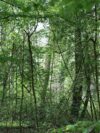Community Empowerment, Scientific Integrity, and effective conservation action. C4C firmly believes that these three elements constitute the cornerstone of successful and enduring nature and species conservation efforts. Explore further details regarding each pillar in the sections below.
Community
Empowerment
Community empowerment and leadership is an indispensable part of conservation work, especially in Africa, where settlements are often adjacent or part of wilderness areas. Without addressing the challenges that local communities face on a daily basis, one can not expect any consideration for nature and its conservation. Effective conservation work can often consist almost entirely of community and development work. In practice, conservation often involves working with people rather than with animals.
Common challenges in local communities may involve poverty, limited livelihoods and a lack of funding and access to education and qualifications, poor living standards such as limited access to clean water and nutritious food, poor medical care systems and living in extreme environmental conditions. Furthermore, human-wildlife incidents can destroy entire livelihoods and even lead to injuries and death, thus creating a strong conflict between wildlife and local communities.
Addressing common challenges in the villages and offering employment and leadership positions to local community members forms a strong basis for conducting a sustainable and effective conservation project. Local members know their areas best and can easily become advocates for conservation if provided with the appropriate employment options. With Caring For Conservation we prioritize projects that actively consider and involve local communities and stakeholders in their projects. We think that this is the best strategy in order to have a meaningful impact.
Science
Science and research are an important tool in conservation. They prove useful to understand the dynamics of the system one works in, such as ecological questions – how animal populations and habitats change. Science also helps in social aspects – how human-wildlife conflicts occur and what it takes to mitigate these, what challenges and opportunities local communities have in remote and wild landscapes. Ultimately research informs conservation practitioners with baseline data and thus the challenges and opportunities in an area. Research is also imperative to measure the impacts and efficacy of implemented conservation work. In addition, cooperations with scientific institutions such as universities or research communities open up a wide range of expertise and financial possibilities, which, if used wisely, can achieve significant successes in nature conservation.
Dr Michael Riffel and Tom Riffel, the founders and directors of C4C, have a scientific background and place a corresponding emphasis on supporting meaningful and scientifically guided conservation projects. Caring for Conservation also welcomes budding conservationists and collaborates with universities so that students and interested laypeople alike can gain practical experience in research and scientific work.
Conservation Action
The protection and conservation of valuable natural areas is one of the most important actions in nature and species conservation. However, due to a continuously rising human population, an increase in unsustainable human land-use, and rising temperatures the number of existing natural landscapes is continuously shrinking. These processes make it both more important but also challenging to conserve what is left of nature.
In particular, the remaining intact ecosystems require our attention. However, efforts to restore depleted areas are showing promising results too. While it may be sufficient to address many of the conservation problems in an area through community-based initiatives, it is sometimes necessary to take further actions. That is what we define as “conservation action”. It could involve law enforcement activities, restoring specific natural areas, or creating water sources for animals, among other things.
We believe, that the majority of adequate conservation action is only possible through collaborations with, and integrated leadership of, local communities and stakeholders. This is why we often prioritize community empowerment in the projects we support. Only when targeting the core problems which often are complex and diverse but usually involve social or economic aspects, it is possible to find solutions concerning nature. This is especially relevant for law-enforcement practices.
In emerging economies, conservation as a whole but especially the land management and conservation action aspects further raise the question of whether it is morally justifiable for western organisations to work in foreign countries. While this topic can be extensively discussed, it further underlines the importance of local empowerment and leadership in conservation work
The Caring for Conservation Fund focuses on the roots of the problems and thus tackling the causes. We are solution-oriented and cost-conscious. We rely on close collaborations with NGO’s and their respective projects.










